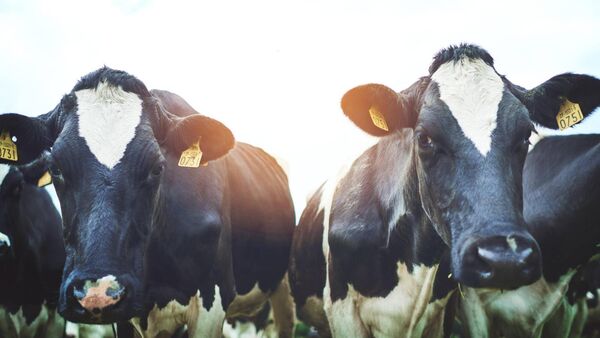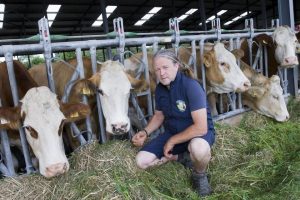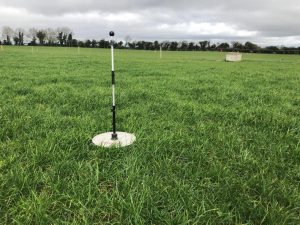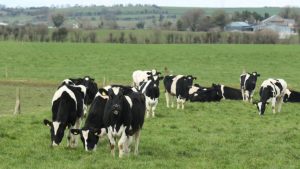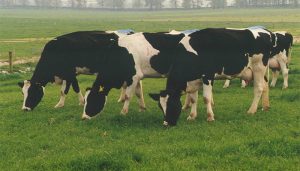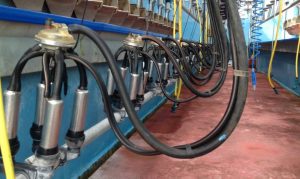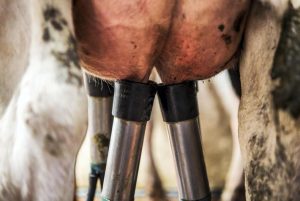
Margins in 2023 will be “incredibly tight”.
Farmers are calling for mid-year top-ups to be paid by “low-paying” co-ops as the dairy year is “not shaping up well” for suppliers.
Irish Creamery Milk Suppliers Association dairy chairman Noal Murphy said that from high inputs to poor weather conditions, 2023 has been a “very hard for dairy farmers from a financial and farm management perspective”.
“Add in the changes to the nitrates regulation and the potential changes to come and it is hard to be optimistic as to where milk volumes will be produced in the coming years,” Mr Murphy said.
Margins in 2023 will be incredibly tight given milk price and the mysteriously slow rate of input price decreases.
“There is no doubt that markets have recovered from their lowest point earlier in the year, but there does appear to be just a pause before buyers re-enter the market and demand feeds through.
“In any case, we are adamant that there is no case whatsoever for further cuts to milk price.”
‘Shocking differential’
Mr Murphy’s comments come as Kerry Group this week confirmed its price of 37c per litre for June milk supplies.
The first processor to announce its June price was Lakeland Dairies, at 37.35c.
Mr Murphy has called on Kerry and other co-ops occupying what he described as “disappointingly low positions” in the ICMSA Milk Price Tracker “to consider ex gratia mid-year top-up payments to their suppliers”.
Mr Murphy said that several co-ops “had allowed a quite shocking differential to open up between the price they paid their suppliers and that paid by comparable processors”.
Rather than attempting to “inch” their way back to parity, the ICMSA dairy chairman proposed a mid-year top-up to be paid by the “underpaying co-ops that would restore their overall payments to their member-suppliers to something resembling the correct levels”.
The 4c per litre difference between top and bottom payers currently being seen “would be eyebrow-raising in December – but in June is a public disgrace”, according to Mr Murphy.
He said that the prospect of any further cuts to price “can’t happen”.
‘Frustration’
Kerry Irish Farmers’ Association dairy chairman Owen O’Sullivan has also said that the milk price Kerry has paid for the first half of 2023 compared with its counterparts is “causing frustration and anger amongst farmers”.
A delegation from Kerry IFA recently met with the management of Kerr with the issue of paying the leading milk price forming part of the discussion.
“We had a constructive discussion on milk price on the day and, after the meeting, we believed that the gap in milk price between Kerry and other processors would be dealt with in the short-term,” Mr O’Sullivan said.
“This hasn’t transpired to date and it’s absolutely imperative that it is addressed as soon as possible.”
Protests
Kerry Group suppliers held two protests in recent weeks.
In June, up to 500 dairy farmers gathered outside Kerry’s buildings in Charleville, Co Cork, to protest at what they say is the “ridiculous” price being paid to farmers for milk.
Suppliers continued their “campaign” for an increased milk price at Kerry Group’s office in Tralee, Co Kerry, last week.
“Milk suppliers of Kerry are absolutely fed up of it at this stage,” Mr O’Sullivan continued.
“The incessant rainfall is adding huge cost and stress to dairy farmers, particularly in the Kerry catchment area.
There was a rightful expectation that Kerry would address the substantial shortfall in milk price for the first half of the year with a top-up on milk supplied year to date in the June milk payment.
“But, yet again, Kerry farmers have been left short-changed.”
